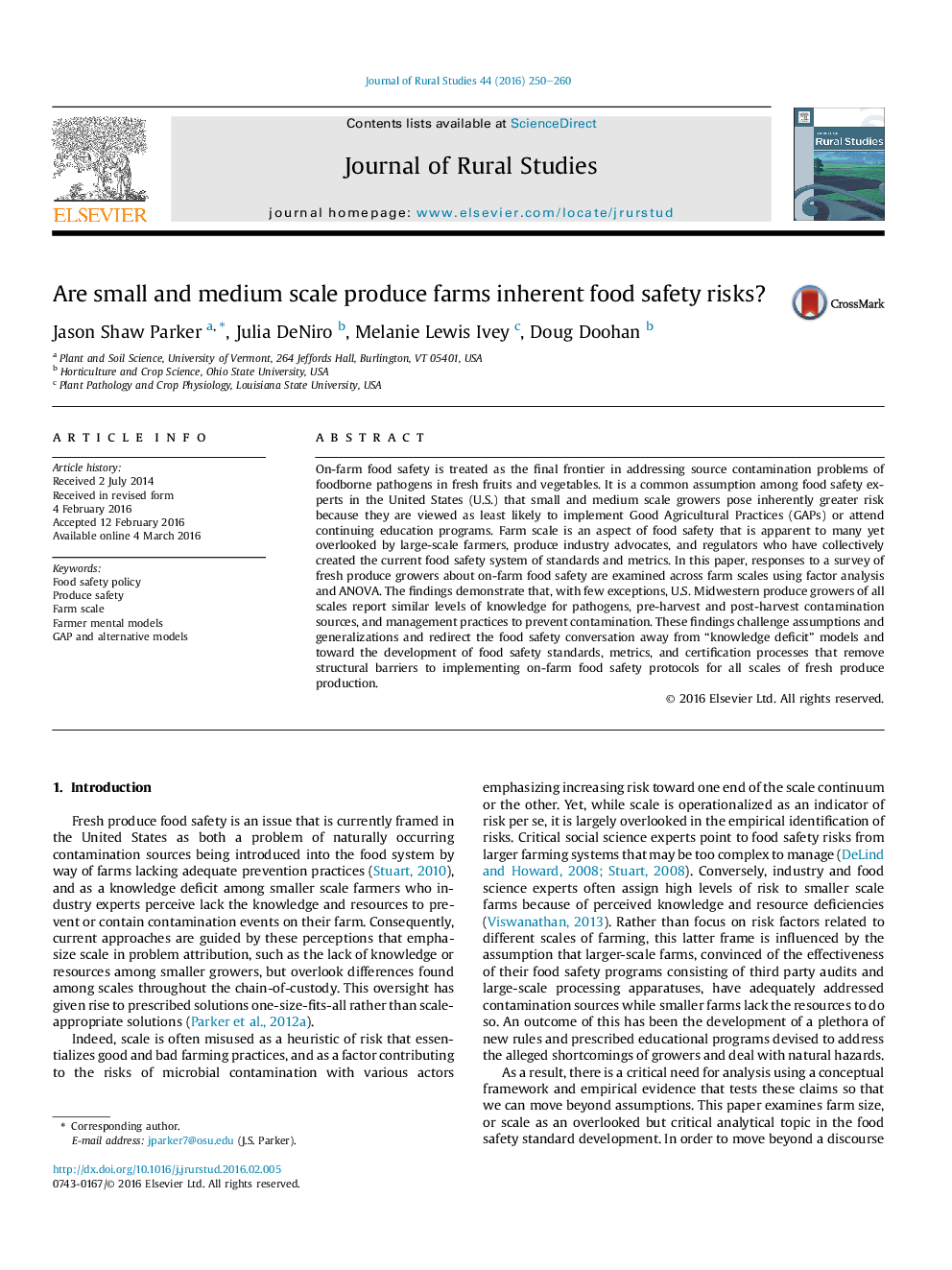| Article ID | Journal | Published Year | Pages | File Type |
|---|---|---|---|---|
| 6545485 | Journal of Rural Studies | 2016 | 11 Pages |
Abstract
On-farm food safety is treated as the final frontier in addressing source contamination problems of foodborne pathogens in fresh fruits and vegetables. It is a common assumption among food safety experts in the United States (U.S.) that small and medium scale growers pose inherently greater risk because they are viewed as least likely to implement Good Agricultural Practices (GAPs) or attend continuing education programs. Farm scale is an aspect of food safety that is apparent to many yet overlooked by large-scale farmers, produce industry advocates, and regulators who have collectively created the current food safety system of standards and metrics. In this paper, responses to a survey of fresh produce growers about on-farm food safety are examined across farm scales using factor analysis and ANOVA. The findings demonstrate that, with few exceptions, U.S. Midwestern produce growers of all scales report similar levels of knowledge for pathogens, pre-harvest and post-harvest contamination sources, and management practices to prevent contamination. These findings challenge assumptions and generalizations and redirect the food safety conversation away from “knowledge deficit” models and toward the development of food safety standards, metrics, and certification processes that remove structural barriers to implementing on-farm food safety protocols for all scales of fresh produce production.
Keywords
Related Topics
Life Sciences
Agricultural and Biological Sciences
Forestry
Authors
Jason Shaw Parker, Julia DeNiro, Melanie Lewis Ivey, Doug Doohan,
